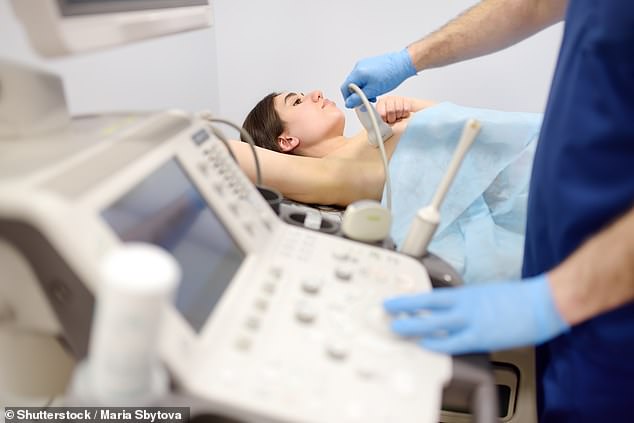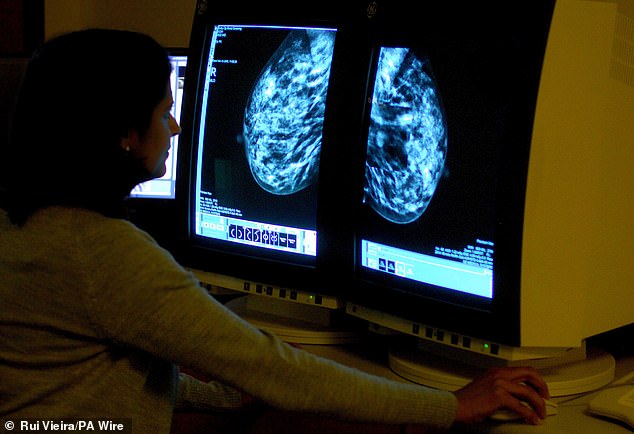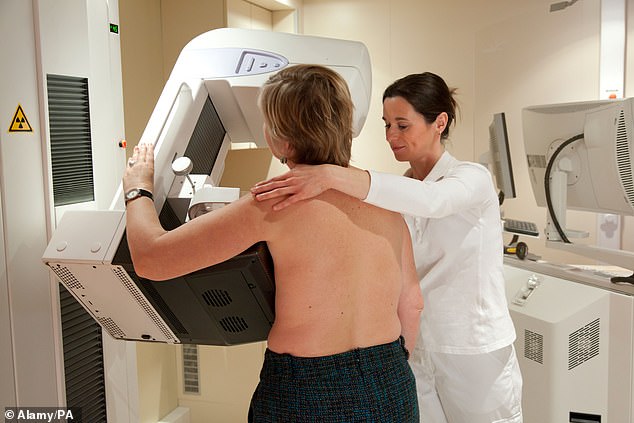A ‘breakthrough’ three-drug treatment for advanced, aggressive breast cancer can delay the spread of the disease twice as long as existing therapies, a trial has found.
Thousands of women could benefit after trials showed the method was more effective than current NHS offerings.
The trial of 325 advanced breast cancer patients from 28 countries found it could delay disease progression by 15 months compared to 7.3 months.
Researchers have hailed the results as potentially “transformative” for those with PIK3CA-mutated HR+/HER2- breast cancer, a common form of the disease triggered by a mutation in the PIK3CA gene.
Half of the patients in the study, published in The New England Journal of Medicine, received the available treatment of palbociclib, a cancer growth blocker, and fulvestrant, a hormone therapy.
The trial of 325 advanced breast cancer patients from 28 countries found it could delay disease progression by 15 months compared to 7.3 months (file image)

Researchers have hailed the results as potentially “transformative” for those with PIK3CA-mutated HR+/HER2- breast cancer, a common form of the disease caused by a mutation in the PIK3CA gene (file image)

Thousands of women could benefit after trials showed the method was more effective than current NHS offering (file image)

Half of the patients in the study received the available palbociclib treatment (pictured)
The other half also received the new drug inavolisib, which blocks the activity of the PIK3 protein.
After 18 months, 46.2 percent of patients in the three-drug group showed no signs of disease progression compared with 21.1 percent of those in the first group.
Lead author Nick Turner, professor of molecular oncology at the Institute of Cancer Research, London, said: “It’s a huge breakthrough that… could represent a transformative breakthrough for people with this type of breast cancer.”


